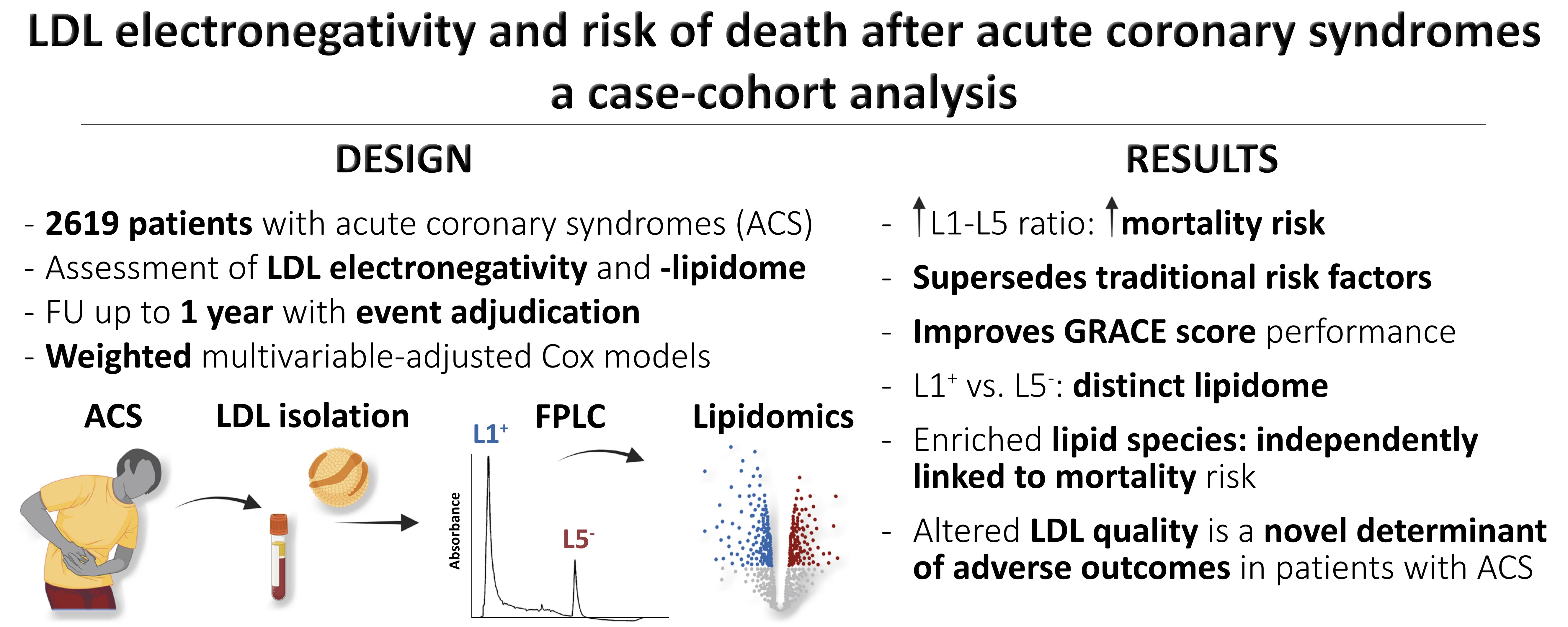Low-density lipoprotein quality determines mortality risk in patients with acute coronary syndromes

Low-density lipoprotein (LDL)-cholesterol (LDL-C) undoubtedly promotes atherosclerotic cardiovascular disease (ASCVD), with changes in LDL electronegativity modulating its pro-atherogenic/pro-thrombotic effects. Whether such alterations associate with adverse outcomes in patients with acute coronary syndromes (ACS), a patient population at particularly high cardiovascular risk, remains unknown. In this case-cohort analysis, members of the Center for Molecular Cardiology identified LDL electronegativity as a completely novel risk factor of adverse events in patients with a recent ACS. Indeed, reduced low-density lipoprotein electronegativity associated independently with mortality risk at 30 days and 1 year after the acute event and superseded several risk factors for the prediction of 1-year death, including LDL-C. Moreover, when added to the GRACE risk score, it enhanced the discriminatory performance of the score, with LDL particles of different electronegativity showing a distinct lipidome, with potential implications for their athero-/thrombogenicity.
We conclude that reductions in LDL electronegativity are linked to alterations of the LDL lipidome, associate with all-cause and cardiovascular mortality beyond established risk factors, and represent a novel risk factor for adverse outcomes in patients with ACS. These associations warrant further validation in independent cohorts. Fully study results are now available in the latest issue of Atherosclerosis.
Simon Kraler